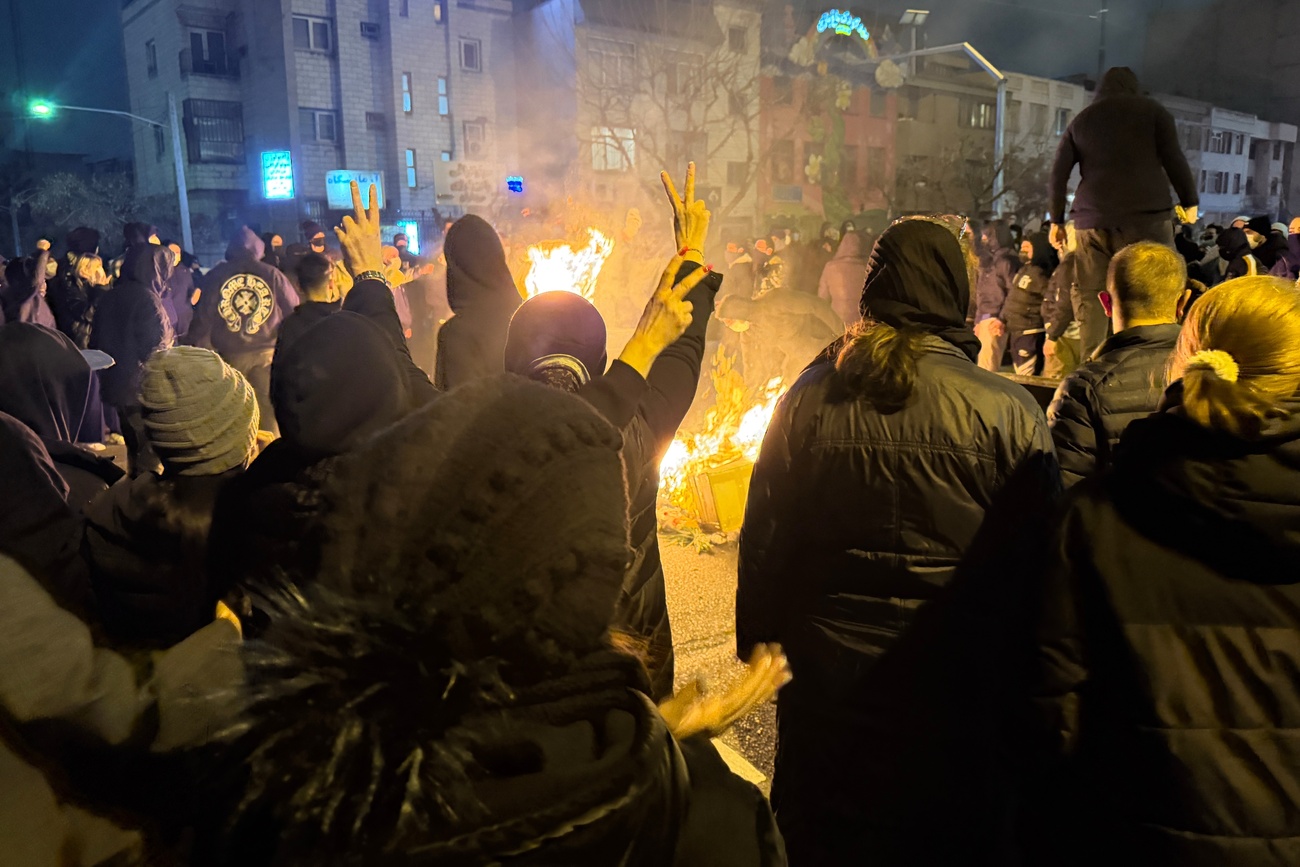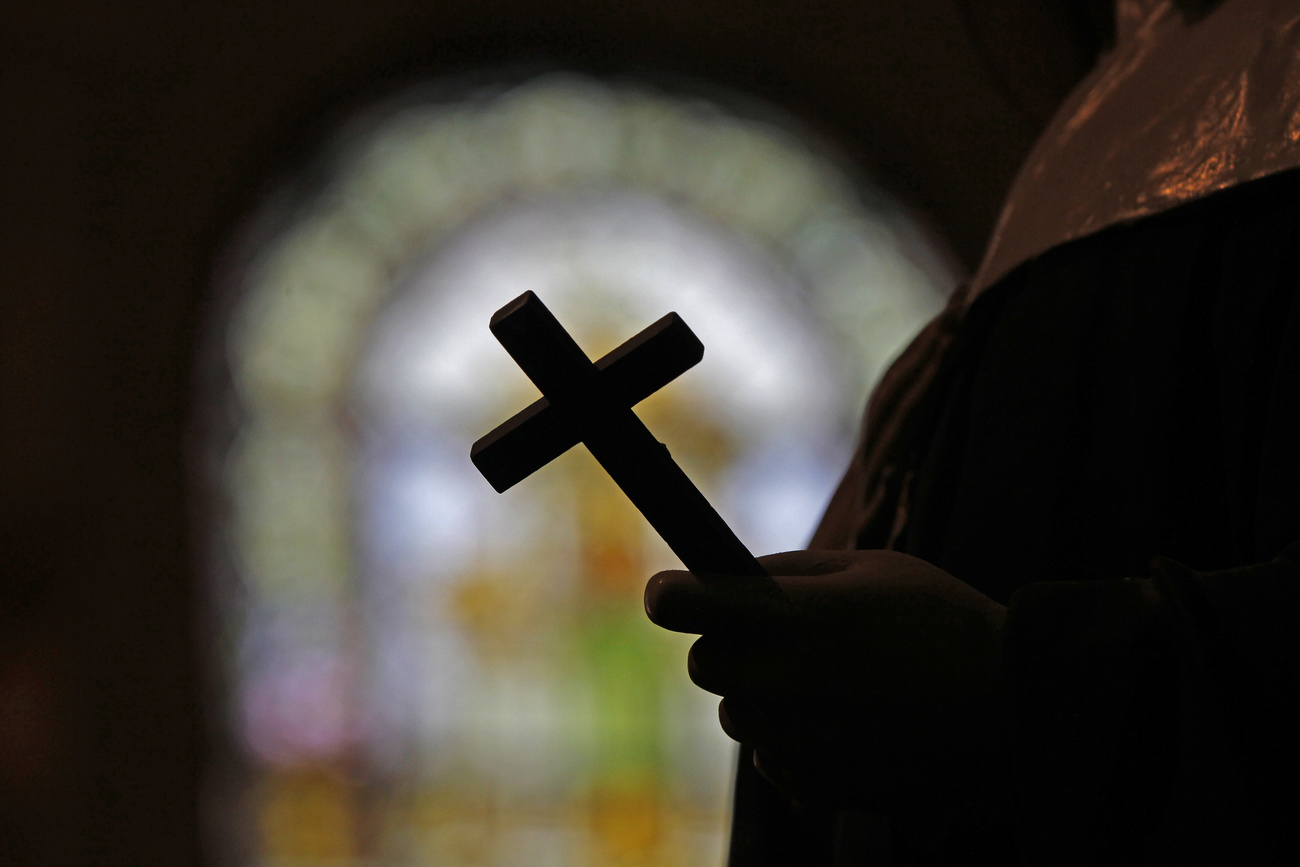
How a national Church tribunal might help fight sexual abuse

The Swiss Catholic Bishops’ Conference has proposed a national ecclesiastical tribunal to deal with cases of sexual abuse. This could help Church justice pick up cases dismissed by civil authorities.
The bishops’ proposal is a relatively new idea, according to Astrid Kaptijn, a professor of canon law at the University of Fribourg in Switzerland. She says the Netherlands has such a national tribunal, but there is little information about it, while France also has had one since December last year. Kaptijn, who helped work on preparing the French tribunal, says she thinks Swiss bishops may have been inspired by the French model.
Their proposal comes in the wake of an explosive independent reportExternal link on sexual abuse in the Swiss Catholic Church published on September 12. Researchers from the University of Zurich documented at least 1,002 cases of sexual abuse committed by Catholic clerics, church staff and members of Catholic orders since the mid-20th century. They found evidence of a wide range of sexual abuse cases ranging from “problematic boundary violations to severe systematic abuse lasting several years”. But they also said this was just the tip of the iceberg. “Given what we know from research on the dark figure of crime, we assume that only a small percentage of cases was ever reported in the first place,” say the historians.
The researchers also found evidence of systematic cover-up by the Church. “Our study reveals that ecclesiastical criminal law was hardly ever applied in the cases we investigated. Instead, many cases were kept secret, covered up or trivialised,” they said.
Penal and disciplinary tribunal
The proposed tribunal would be penal and disciplinary. Kaptijn says that traditionally in the Church there are tribunals at the level of the diocese, but these have mostly dealt with issues around the validity of a marriage. In recent years more penal cases have been brought to these tribunals, but there is a lack of expertise at diocesan level to handle them.
“The idea now of a penal tribunal on a national level could contribute to more specialisation, so we have a pool of experts to treat these cases,” she told SWI swissinfo.ch. “The other thing is it de-localises the cases, and I think that will promote more impartial treatment of the cases. Because you can imagine that if a person – normally a priest – in a diocesan tribunal has to deal with one of these penal cases, it may be that he has to judge a fellow priest, which might interfere with neutral treatment of the case.”
The Swiss Bishops’ Conference stressed that civil procedures (i.e. under the judicial authorities of the state) would continue to take precedence over Church justice. For centuries, clerics could only be tried within the Catholic Church itself, but in recent times there has been more and more respect for civil procedures, explains Kaptijn. “Nowadays the Catholic Church says that if there is a necessity to give priority to civil law and civil procedures, we should respect that.” That means, she continues, that when a bishop receives a complaint about sexual abuse, he normally refers it to the civil authorities quite quickly. If they dismiss it, or rule that the alleged crime is time-barred, the Church will be able to act according to its own judicial order.
Talking to the Vatican
The Swiss Bishops said they would be holding talks with the Vatican on their proposal for a national tribunal on sexual abuse. “There has to be an authorisation from Rome,” says Kaptijn, “and it seems that the president of the Swiss Bishops’ Conference is at the moment in Rome because there’s a synod taking place.” She says he will stay for three weeks and will likely try to have the necessary contacts with the Vatican to get permission for the tribunal.
“Rome has very often not been so fond of organising things on a national level,” Kaptijn told SWI swissinfo.ch. But she thinks it likely the Vatican will agree this time, notably because of the example in neighbouring France.
She points out that such a tribunal will not be able to treat all abuse cases. Those concerning abuse of minors have to be referred to Rome, so a national tribunal would be limited to cases involving adults – unless the Vatican decided to send a child abuse case back. The Vatican has its own internal body dealing with child abuse cases, but it does not publish its decisions and the process is not very transparent. This has provoked criticism, including from UN expertsExternal link.
Many reported cases are old, meaning that they fall under a statute of limitations and cannot be taken up in civil courts. If the time bar is to be lifted, only Rome can decide.
So what impact could a national ecclesiastical tribunal have? “De-localising these cases means that the local bishop is less involved, and that can be an advantage,” says Kaptijn. “There also can be a possibility to involve not only priests for the different functions of this tribunal but also lay persons, and that also might help to give more transparency and impartiality. So I think for all these reasons, it can be a very good thing.”

In compliance with the JTI standards
More: SWI swissinfo.ch certified by the Journalism Trust Initiative





























You can find an overview of ongoing debates with our journalists here . Please join us!
If you want to start a conversation about a topic raised in this article or want to report factual errors, email us at english@swissinfo.ch.